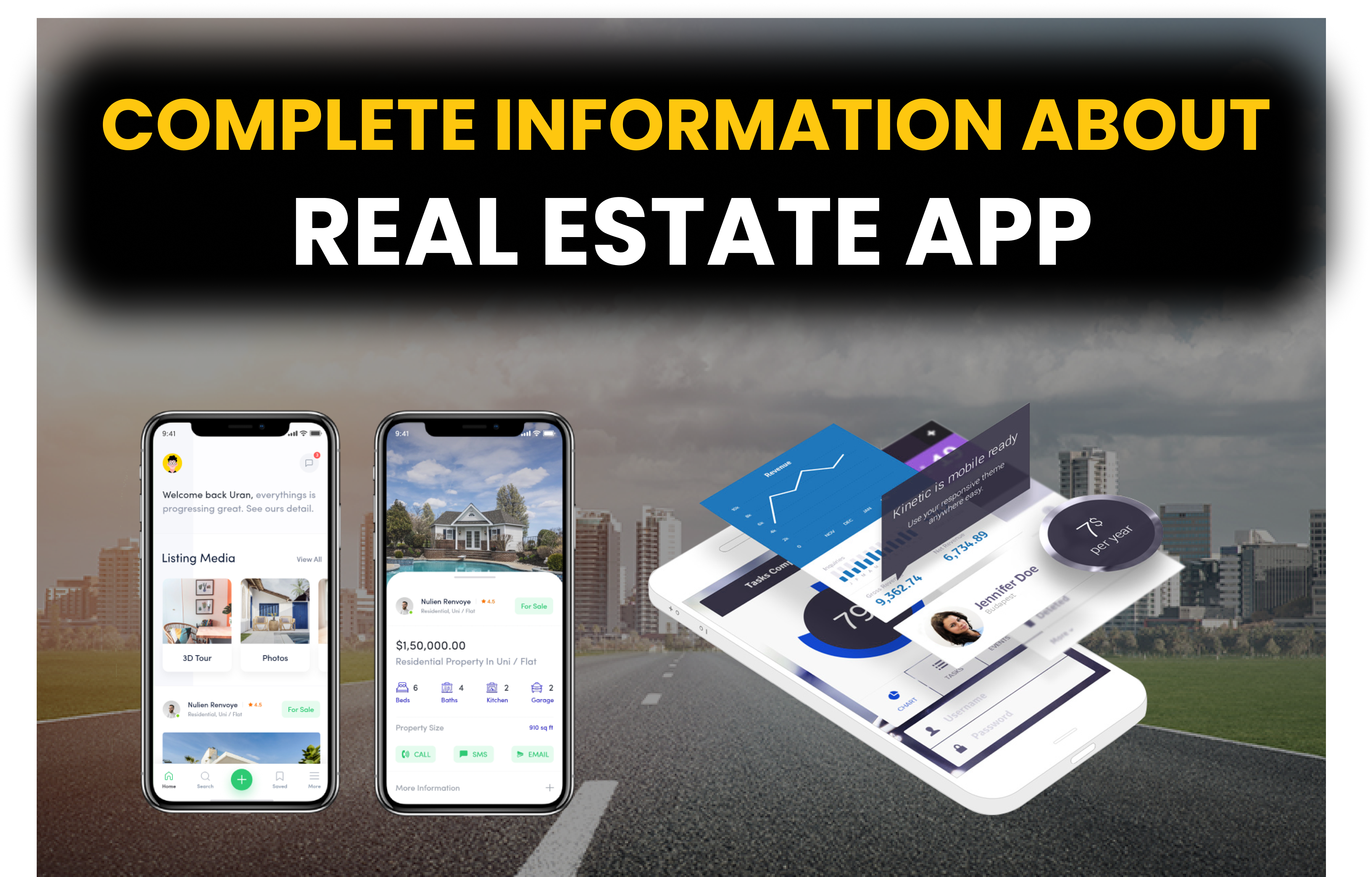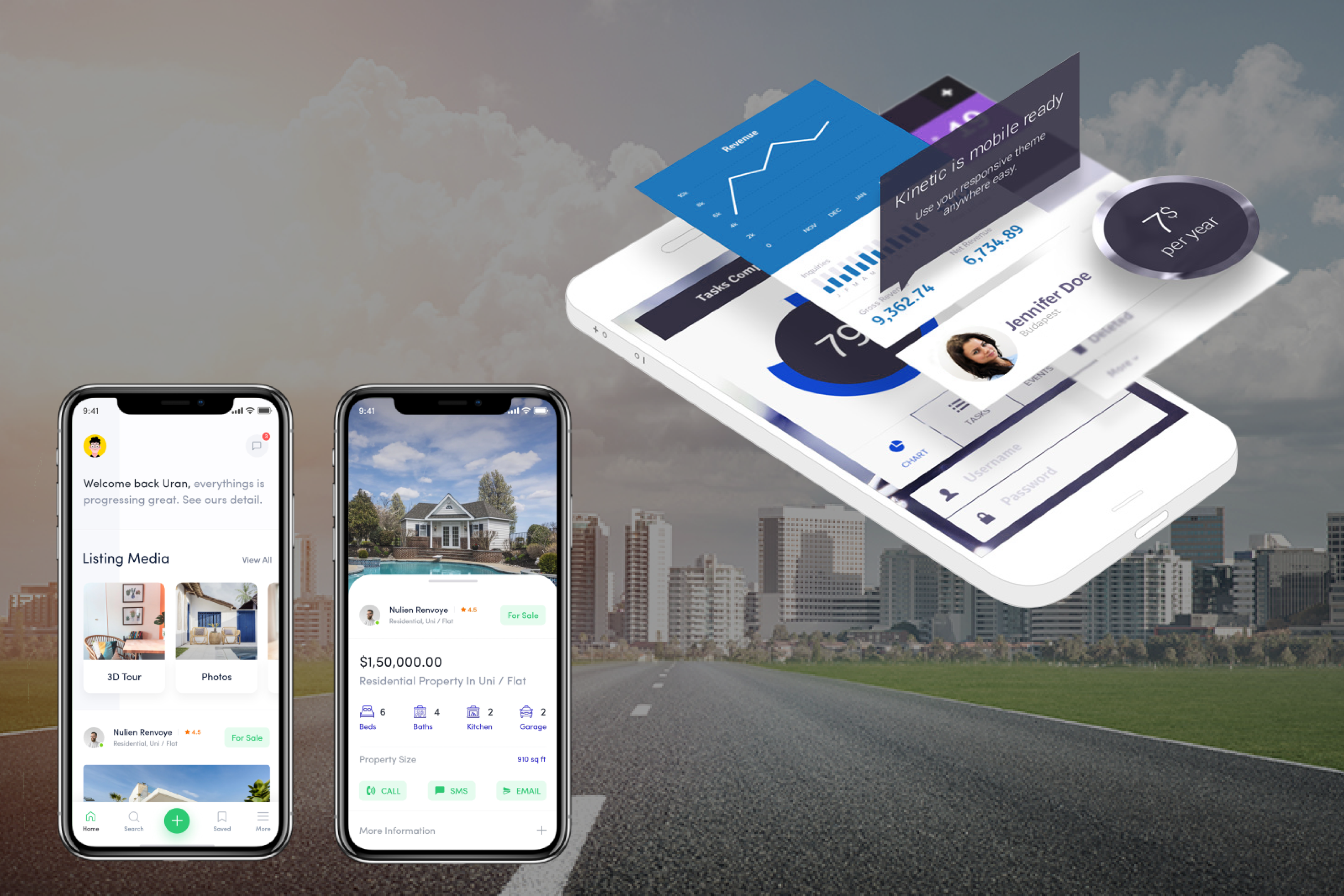Real Estate Apps are increasing nowadays as all things are moving towards the digital world. The real estate industry has witnessed a digital revolution in recent years, with the approach of real estate apps.

Real Estate Apps are very popular and these apps have simplified property search, buying, selling, and renting processes for both real estate professionals and consumers. If you're considering developing a real estate app or interested in using one, this blog will provide a comprehensive guide on real estate app features and the development cost scenario and strategy used behind.
We will discuss all necessary features and functionality, factors affecting the particular app. These apps depend on some market factors like location, standard of living, and so on.
A real estate app is a mobile application designed to assist individuals in buying, selling, renting, or managing real estate properties. These apps provide various features and functionalities that help users navigate the real estate market more effectively.
These apps are beneficial especially for buyers and sellers in that particular field. It helps individuals to search for flats, properties in the easiest manner. Some of the popular real estate apps are Zillow, Realtor.com, trulia, Redfin, Homes.com, Apartments.com, Zumper, LoopNet, Compass, etc.
Real Estate earnings depend on various factors, real estate applications have the potential to generate revenue through monetization strategies, including the sale of advertising space to third-party enterprises, premium property listings for real estate professionals, subscription-based services, earning a commission on each transaction, and more.
Generally, the main source of earning in real estate apps is commission, people can earn a big amount through commission based strategies. Adsense also plays an important role, running targeted ads on platforms like Google Ads, Facebook Ads, and Instagram by using geo-targeting to reach users in specific locations.

A successful real estate app should offer a range of features which affects the overall success. Below are some key features that you should consider incorporating into your real estate app:
Property Listings: This feature is very essential for any real estate app. Users should be able to browse, search, and filter properties based on criteria such as location, price, size, and property type.
High-Quality Images and Videos: Visual content is very crucial. Users should be able to view high-quality images and videos of properties to get a better idea of what they're considering.
Map Integration: Integration with maps like Google Maps helps users to visualize property locations and explore nearby flats or properties.
Property Details: Each property listing should provide comprehensive information, including property type, size, price, number of bedrooms and bathrooms, 1BHK, 2BHK, 1RK, studio apartment, and additional details.
Search and Filters: Allow users to sort their search with advanced filters to find properties that match their specific requirements.
Favorites and Saved Searches: Users can save properties they like and set up saved searches to receive notifications when new listings match their criteria.
User Profiles: Users should be able to create profiles to manage their saved properties, searches, and contact information.
Real-Time Messaging: It is very important to incorporate a chat or messaging system that enables users to communicate with property owners, agents, or other users.
User Reviews and Ratings: Enable a system for users to leave reviews and ratings for properties and agents, building trust and credibility.
Mortgage Calculator: A built-in mortgage calculator can help users estimate their monthly payments or EMI’s.
Virtual Tours: Offer 360-degree virtual tours of properties for a more outstanding experience.
Push Notifications: Send notifications about new listings, price changes, or messages, and keep your users engaged.

The development cost of a real estate clone app can vary widely depending on several factors. These factors include the complexity of the app, the features you want to include, the platforms you want to target like IOS, Android or web, the location of your development team, and the technology stack you choose. Here are some key considerations that can affect the cost:
Basic App: A simple real estate app with essential features may cost around Rs 1 lakh.
Mid-Range App: An app with additional features like advanced search, map integration, and messaging could cost around Rs 2 lakhs.
High-End App: A feature-rich app with advanced technologies and features such as AI-powered property recommendations, and virtual tours could cost around Rs 3 lakhs or more.
Ongoing Maintenance: Don't forget to budget for ongoing maintenance and updates, which can add 20-30% of the initial development cost annually.
The location of your development team also plays a significant role in cost. Offsite development teams might be more cost-effective, but consider the quality of work and communication as well.

Promotion of Real Estate Apps can vary on various factors, many advertising and marketing strategies need to follow. Some of them are discussed below:
Define Your Target Audience: Understanding who your ideal users are. Are you targeting homebuyers, sellers, renters, or real estate professionals? Knowing your audience is crucial for tailoring your promotional efforts.
Optimize Your App: Ensure your app is user-friendly, visually appealing, and functions smoothly. A well-designed and attractive app is more likely to gain and maintain loyal users.
Create Quality Content: Develop informative and engaging content related to real estate. Write blog posts, articles, or guides that provide value to your target audience. Share the content through your app and on social media.
Social Media Marketing: Use platforms like Facebook, Instagram, and LinkedIn to create a presence. Share engaging visuals, property listings, and informative content. Run targeted ads to reach potential users.
Email Marketing: Build an email list of interested users. Send regular newsletters with property listings, tips, and app updates. Personalize emails based on user preferences and behavior.
Collaborate with Real Estate Professionals: Partner with real estate agents, brokers, and agencies. Offer them incentives to promote your app to their clients.
Paid Advertising: Run targeted ads on platforms like Google Ads, Facebook Ads, and Instagram.

In conclusion, real estate apps have transformed the way properties are bought and sold. The success of your real estate app will depend on the features you offer and the quality of the user experience. While development costs can vary, a well-designed, feature-rich app can be a profitable investment in the growing real estate tech market. Explore meratemplate.com for developing such types of apps and websites. Make sure to research your target audience, stay updated on industry trends, and invest in user-friendly design and functionality to create a competitive and successful real estate app.